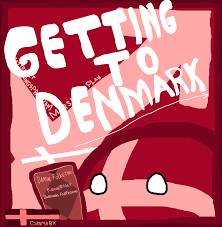
I am WEIRD. You probably are too. WEIRD is an acronym for Western, educated, industrialized, rich, and democratic. This is explored in Joseph Henrich’s 2020 book, The Weirdest People in the World – How the West Became Psychologically Peculiar AND Particularly Prosperous.
This profile of people like us differs markedly from that of our forebears, and of most people in the world even today. As Henrich stresses, the difference is not just in our way of life, but in how our minds work. Literally rewiring our brains. A key concept in the book is that there isn’t one overall human psychology, our psychologies being shaped by our particular, often very different cultures. WEIRD people — beyond the five characteristics of the acronym— tend to be less conformist, less tradition minded, more individualistic, less distrustful of strangers, more honest in dealing with them, more charitable, more time conscious, and more analytical in their thinking.
Here’s another emotional/psychological dichotomy, tied to our sense of individualism. For us, guilt looms large, while for others it’s shame. The difference is that guilt is self-directed, we judge ourselves; whereas shame is all about others judging us.

Much has been written (much of it derogatory) about the West and its attitudes, their outsized role in the human story, and how that role came to be. For example, Jared Diamond’s Guns, Germs, and Steel argued that geographical happenstances, like the kinds of animals and plants available for cultivation during prehistory, drove subsequent cultural trajectories down to the present. Henrich assigns a similar importance to one event in 1517 — launching the Reformation, which he says sparked an explosive spread of literacy in Europe, with large consequences.
However, he posits that even before then, peculiarities of social practices involving religion, marriage, inheritance, and family life were taking shape, putting Western Europe on the path to WEIRDness: impersonal markets, urbanization, constitutional governments, democratic politics, individualistic faiths, and science and innovation.
A psychology of individualism is particularly significant. Henrich cites studies asking people to fill in the blank: “I am ______.” WEIRDos mostly answer with some personal attribute, like their profession, or a salient personality trait. Other humans mostly by reference to some social role in which they see themselves, usually kin-based. Kinship webs indeed dominated our lives through most of history.

Many lament the change, using terms like “alienation” and “anomie,” suggesting non-WEIRDness is a richer, better way to live. I’ve tended to reject such thinking, seeing our individualistic ethos as a good thing, freeing people from webs restricting their lives. Though admittedly in recent decades our solipsism has metastasized, especially with all those people fixated on their phones to the detriment of actual social interaction.
Note however that WEIRDness is clearly a societal plus in terms of prosperity, order, and stability. Take the famous marshmallow test, one way to gauge patience and ability to defer gratification. Children who score high there tend to go on to more successful lives. And high marshmallow scores correlate with high WEIRDness scores. Americans score much better on both than Zimbabweans — whose country is a mess.
But Henrich posits that perhaps the biggest reason why Western Europe leaped ahead was that getting out of kinship networks exposed more people to more diverse other people, leading to far greater cross-fertilization of ideas and innovation. Quite simply making them smarter.
The book discusses other aspects of progress that also promoted enhanced cognition. One not mentioned: better sanitation, making water safe to drink. Before, people, to be safe, drank mostly beer. Greater sobriety improved mental functioning. Helping progress build upon progress.
And the largest factor making us WEIRD may seem surprising. Henrich says it was the Christian church, during Medieval times, intervening in marriage and family customs in ways that shredded patrilineal kinship structures and blood-based tribalism. It took centuries. But statistical analysis shows that even within European countries, localities with longer/stronger exposure to the Church’s marriage and family policies are WEIRDER today.

And why did the Church push those policies? It had prudish hang-ups about anything sex-related. And Henrich emphasizes competition between Christianity and a host of other belief systems. With a big reason for Christianity’s success being its “extreme package” of marriage and family dictates, which changed people’s psychologies in ways that molded them to the church’s program more generally. In short, to prevail, it had to defeat kin-based institutions.
So: a ban on marrying even distant cousins forced people to reach outside, and thus sidelined, kin networks. In their place the nuclear family became the societal linchpin. Married couples were now expected to set up their own households. The common practice of levirate marriage (widows marrying their brothers-in-law), arranged marriages, and multiple wives, all were out too.
Stamping out polygamy, in particular, had huge impacts. In societies with polygamy, elite males tend to hog the women. Plural marriage has prevailed throughout human societies and, indeed, among all group-living primates. The topmost males have often grabbed hundreds of wives — because they could. This leaves a large underclass of deprived, sexually frustrated men, with no stake in the future, competing over the few women available. (Polygamous American Mormon communities dealt with this by effectively throwing out surplus young men.)
Monogamy makes for a much healthier social dynamic. Furthermore, WEIRD families tend to have fewer babies, thus averting the “Malthusian trap” of population outrunning resources, and enabling people to live better.
One might imagine that societies “atomized” into nuclear families, as opposed to kinship networks, with a greater sense of individualism rather than a collectivist mentality, would impair public spiritedness and social consciousness. The opposite is true. WEIRD people make, for example, more charitable donations to help poor strangers. It’s not actually counter-intuitive. The trouble with kinship systems is that non-kin are given short shrift. WEIRDos have more expansive views of their social roles.

This was a whole different way for people to see themselves in relation to others. Viewing themselves more as individuals rather than like ants in an ant hill. And that’s how we got to the American Declaration of Independence — and to Denmark.
“Getting to Denmark” is a catchphrase referencing that country as exemplifying ones that work well, enabling most citizens to flourish — and raising the question of how to achieve that nirvana. It’s not simple, and seems to endlessly bedevil a lot of countries.
In this vein I recall Ayaan Hirsi Ali’s memoir Infidel, telling how, in fleeing to the Netherlands, the culture shock, contrasting with the several Muslim countries she’d lived in, blew her mind. No Muslim nation seems able to get to Denmark; nor any African ones. Henrich says kinship-based societies try to superimpose successful WEIRD paradigms; but without changing the psychologies, that tends to be a poor fit, and problem-ridden.
The African nation I know best is Somaliland, which actually does an awful lot right. I’ve been involved with an education project there aiming to transform the country. Numerous graduates have gone on to Western schools, and some have returned to help advance their country. But we’re learning how hard that is; there just aren’t many opportunities for them to build the kinds of rewarding lives they can in the West.

So Somaliland is still far from Denmark. Henrich would see the reason as, basically, lack of WEIRDness — that is, lacking that repertoire of cultural and psychological paradigms departing from what’s traditional for humanity. And I do note that in Somaliland, patrilineal kinship networks still figure hugely in defining society; polygamy and cousin marriage remain widespread. The father of a Somaliland gal who lived with us had multiple wives; her mother had a levirate marriage.
